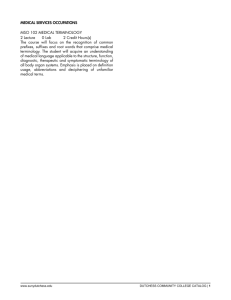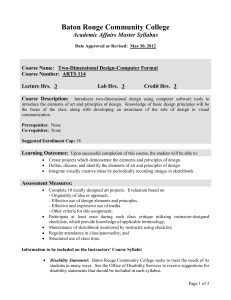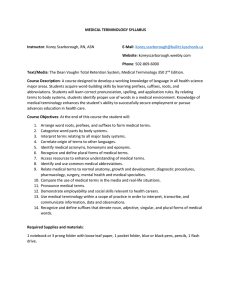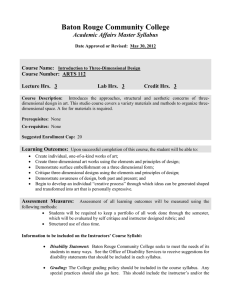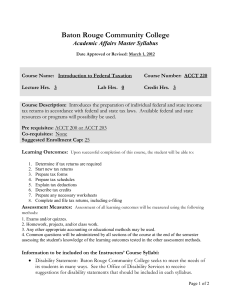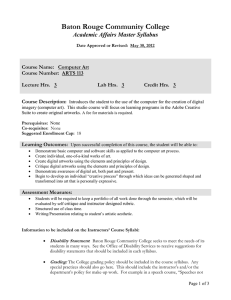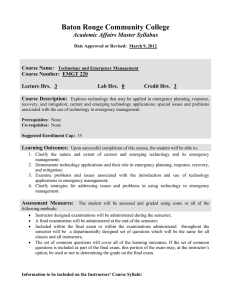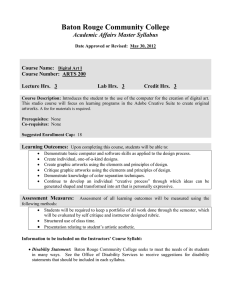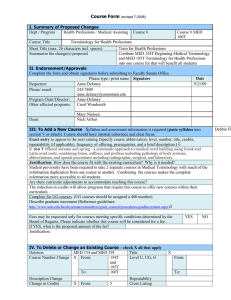Baton Rouge Community College Academic Affairs Master Syllabus
advertisement
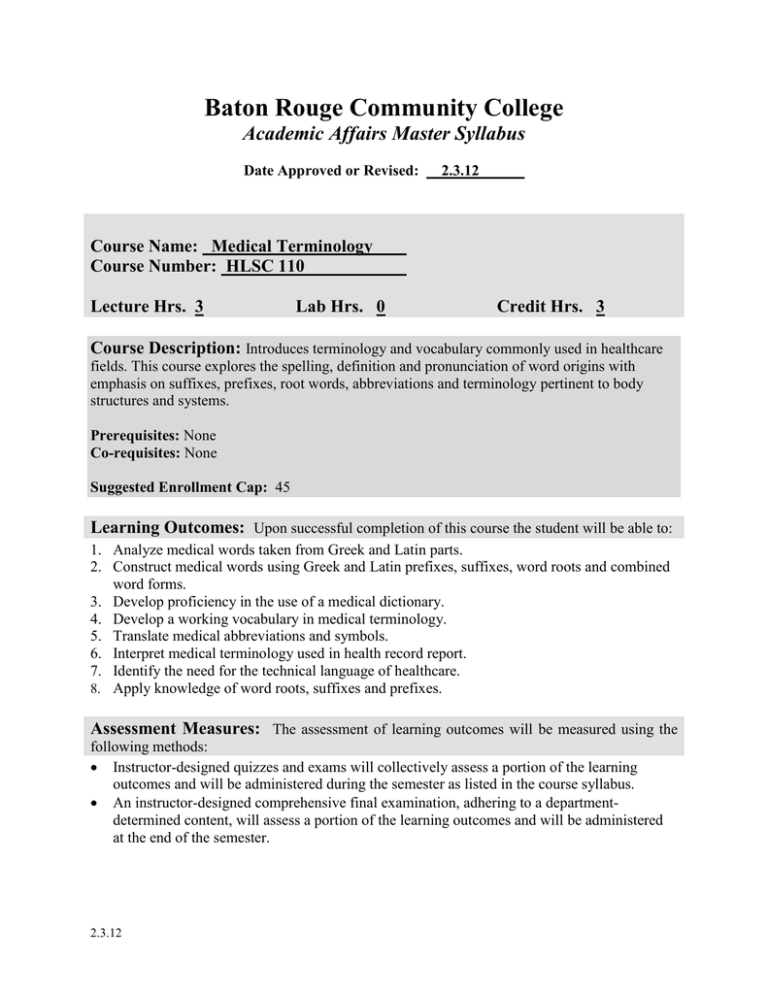
Baton Rouge Community College Academic Affairs Master Syllabus Date Approved or Revised: __2.3.12______ Course Name: Medical Terminology Course Number: HLSC 110 Lecture Hrs. 3 Lab Hrs. 0 Credit Hrs. 3 Course Description: Introduces terminology and vocabulary commonly used in healthcare fields. This course explores the spelling, definition and pronunciation of word origins with emphasis on suffixes, prefixes, root words, abbreviations and terminology pertinent to body structures and systems. Prerequisites: None Co-requisites: None Suggested Enrollment Cap: 45 Learning Outcomes: Upon successful completion of this course the student will be able to: 1. Analyze medical words taken from Greek and Latin parts. 2. Construct medical words using Greek and Latin prefixes, suffixes, word roots and combined word forms. 3. Develop proficiency in the use of a medical dictionary. 4. Develop a working vocabulary in medical terminology. 5. Translate medical abbreviations and symbols. 6. Interpret medical terminology used in health record report. 7. Identify the need for the technical language of healthcare. 8. Apply knowledge of word roots, suffixes and prefixes. Assessment Measures: The assessment of learning outcomes will be measured using the following methods: Instructor-designed quizzes and exams will collectively assess a portion of the learning outcomes and will be administered during the semester as listed in the course syllabus. An instructor-designed comprehensive final examination, adhering to a departmentdetermined content, will assess a portion of the learning outcomes and will be administered at the end of the semester. 2.3.12 Information to be included on the Instructors’ Course Syllabi: Disability Statement: Baton Rouge Community College seeks to meet the needs of its students in many ways. See the Office of Disability Services to receive suggestions for disability statements that should be included in each syllabus. Grading: The College grading policy should be included in the course syllabus. Any special practices should also go here. This should include the instructor’s and/or the department’s policy for make-up work. For example in a speech course, “Speeches not given on due date will receive no grade higher than a sixty” or “Make-up work will not be accepted after the last day of class.” Attendance Policy: Include the overall attendance policy of the college. Instructors may want to add additional information in individual syllabi to meet the needs of their courses. General Policies: Instructors’ policy on the use of things such as beepers and cell phones and/or hand held programmable calculators should be covered in this section. Cheating and Plagiarism: This must be included in all syllabi and should include the penalties for incidents in a given class. Students should have a clear idea of what constitutes cheating in a given course. Safety Concerns: In some programs this may be a major issue. For example, “No student will be allowed in the safety lab without safety glasses.” General statements such as, “Items that may be harmful to one’s self or others should not be brought to class.” Library/ Learning Resources: Since the development of the total person is part of our mission, assignments in the library and/or the Learning Resources Center should be included to assist students in enhancing skills and in using resources. Students should be encouraged to use the library for reading enjoyment as part of lifelong learning. Expanded Course Outline I. Introduction to Medical Terminology II. Introduction to Health Records III. Integumentary System IV. Musculoskeletal System V. Cardiovascular System VI. Blood and Lymph Systems VII. Respiratory System VIII. Nervous System IX. Endocrine System X. 2.3.12 The Eye and Ear XI. Gastrointestinal System XII. Urinary System XIII. Male Reproductive System XIV. Female Reproductive System 2.3.12
